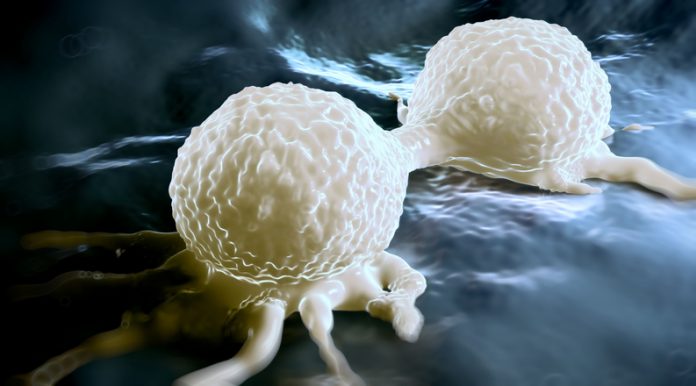
A recent study from investigators at the UCLA Health Jonsson Comprehensive Cancer Center has found that common treatments for breast cancer—chemotherapy, radiation, and surgery—may contribute to accelerated biological aging in survivors. The research, published in the Journal of the National Cancer Institute, demonstrates that markers of cellular aging such as DNA damage response, cellular senescence, and inflammatory pathways are all significantly increased in breast cancer survivors across all treatment types.
The researchers said their findings indicate that the effects of these treatments on the body are more extensive than current thinking.
“For the first time, we’re showing that the signals we once thought were driven by chemotherapy are also present in women undergoing radiation and surgery,” said Judith Carroll, PhD, the study’s lead author and an associate professor of psychiatry and biobehavioral sciences at UCLA. “While we expected to see increased gene expression linked to biological aging in women who received chemotherapy, we were surprised to find similar changes in those who only underwent radiation or surgery.”
According to the American Cancer Society, nearly 70% of women diagnosed with breast cancer will undergo surgery, about 75% will receive radiation, and nearly 60% will have chemotherapy. Further, advances in breast cancer treatments have led to an increasing number of breast cancer survivors—today numbering around four million in the U.S., which is expected to swell to more than six million by 2040. Yet, while treatments have created a larger population of breast cancer survivors, the effects of these treatments often lead to accelerated aging, which affect survivors’ overall health.
To better understand how gene expression related to aging changes over time, the researchers conducted a two-year longitudinal analysis of women diagnosed with breast cancer. They measured changes in gene expression related to aging in blood samples collected both before and after undergoing breast cancer treatments.
Leveraging RNA sequencing, the UCLA team examined gene expression in the patients’ blood cells as well as cellular senescence, the process some cells undergo where they stop dividing, yet don’t die. Referred to as “zombie cells,” these cells accumulate over time and can release substances that damage nearby healthy cells resulting in accelerated aging and increased inflammation.
The analysis revealed significant increases in genes associated with biological aging, regardless of the treatment type. Notably, the team identified heightened expression of genes linked to DNA damage and inflammatory responses. While chemotherapy exhibited a distinct gene expression pattern, changes were also observed in women who did not receive chemotherapy.
Using a statistical model, the researchers looked at their data for changes related to aging and found that regardless of the treatment they received, the enrolled patients exhibited increased expression of genes related to aging. Notably, the genes that capture cellular senescence and an inflammatory signal from these zombie cells showed they were aging faster than normal. The team also saw responses in the genes that are expressed when DNA is damaged.
“The results suggest women who receive treatment for breast cancer have a pattern of gene expression that indicates increased DNA damage and inflammation, which could be important targets for recovering from cancer and having a better quality of life in survivorship,” said senior study author Julienne Bower, PhD, a professor of psychology at UCLA.
The next steps for the UCLA team is to further investigate a biomarker that could measure a woman’s biological age and her rate of aging. The intent is be able to discern whether aging signals detected during cancer treatment will have a long-term effect on biological age and to more precisely determine the factors influencing this aging.
“We’ve only just begun to understand the long-term consequences of cancer therapy and these findings are a critical step toward understanding the biological pathways that drive many post-treatment symptoms in breast cancer survivors,” Carroll concluded. “Our goal is to find ways to improve survivorship, not just in terms of years lived, but also in quality of life and overall health.”





